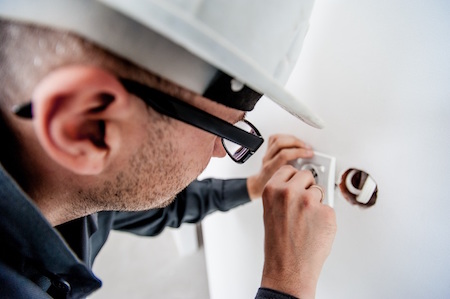How to Keep Your Maintenance Costs Low
For some landlords, turning a profit from rental property can prove challenging. From marketing costs to mortgage payments, the expenses can add up quickly. Without careful budgeting, you could easily find yourself losing money on your investment.
Repair and maintenance costs are perhaps one of the greatest expenses of all. Fortunately, these expenses can be lowered through proper planning and smart decisions.
We've put together the following tips to help Denver area landlords get a better grasp on maintenance costs.
1. Know What You Are Buying

Is the condition of the property acceptable? Too often real estate investors disregard the issue of maintenance when buying property and only pay attention to the property’s sale price and curb appeal.
It pays to do your due diligence. Have the property inspected by a qualified professional. After this is done, get estimates of the maintenance costs as well as the time it would take for the repairs.
If the repairs are serious and the property would potentially remain vacant for a couple of months, it may not be worth it.
2. Have a Thorough Tenant Screening Process in Place
You can drastically reduce maintenance costs by selecting the right tenants who demonstrate personal responsibility. In an ideal situation, you may be able to eliminate up to 50% of your maintenance costs this way.
To get a better idea of a prospective tenant’s “house sense,” you should remember to ask their previous landlords questions such as:
- Did this tenant do a reasonable job of taking care of the rental property?
- Did this renter cause property damage in excess of wear and tear?
- Was the unit clean and in good order when this renter left?
- Would you rent to this tenant again?
3. Have a Repair and Maintenance Budget
As an investment property owner, it’s important to be prepared for emergencies and maintenance requests. Preferably, place a portion of your earnings in a savings account each month.
This way, you can always tap into those funds instead of seeking high-interest loans or racking up debt on credit cards.
4. Respond to Issues Promptly
Simple issues can quickly become serious and costly with time. As such, take care of maintenance issues promptly before they become a source of stress and heartache down the road.
By scheduling regular inspections, you can deal with issues as soon as they happen. By caring for your property, renters will also feel compelled to do the same.
5. Understand the Law

Yes, it’s both easy and convenient to send someone to fix a problem on your property. But what you might not know is that certain issues need a licensed professional with credentials.
Therefore, before taking the easier route, make sure that you understand local laws as it pertains to repairs and maintenance issues.
6. Opt for Efficient Appliances
This is a no-brainer. Use shower heads and toilet systems that use less water. Switch to energy efficient bulbs and appliances that consume less power.
When shopping for energy efficient appliances, choose those bearing the “Energy Star” label.
7. Recruit a Handyman

Having a handyman do all the dirty work for you can save you lots of time. This may also improve your relationship with tenants as issues will be addressed more swiftly.
8. Read the Repair Manuals
Just about anything in your home has a manual. Included in these manuals are important information on maintenance. Some even have step-by-step instructions on how items should be fixed should they have problems.
As the saying goes, an ounce of prevention is worth a pound of cure. Regular maintenance will help you minimize costs and keep everybody happy.
Use these tips to keep your maintenance costs low.
